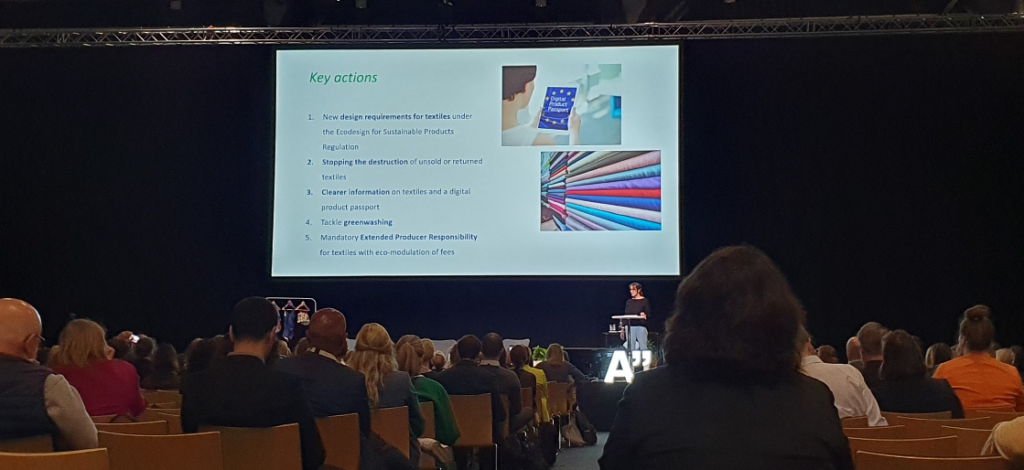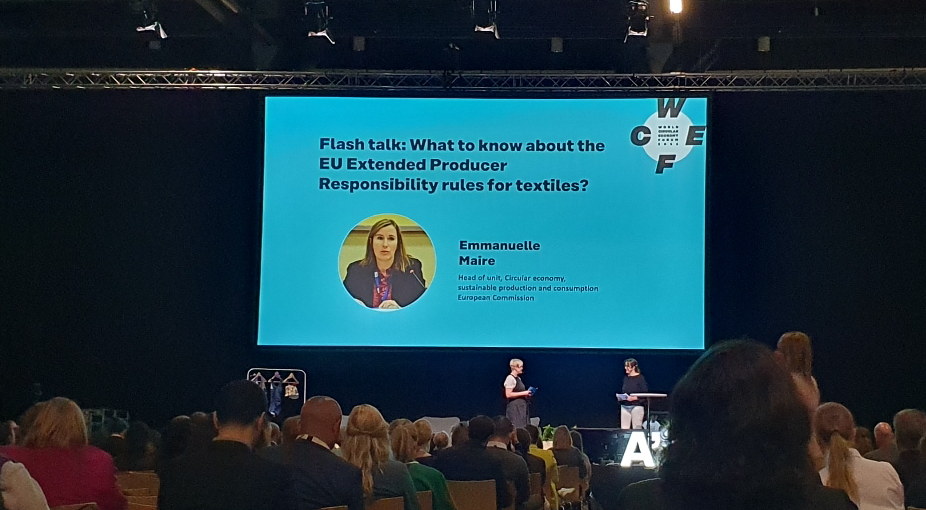A session on circular textiles at the World Circular Economy Forum 2023 highlighted EU experiences: WATCH THE REPLAY.
The session titled “Wardrobe of the future: how to change the textiles and fashion industry” opened with a presentation of two EU funded Horizon 2020 programmes: T-REX and New Cotton Project.
The T–REX Project (Textile Recycling Excellence) works to create a harmonised EU blueprint for
closed–loop sorting, and recycling of household textile waste. Transforming end–of–use textiles, from waste, into a desired feedstock, and a commodity for new business models that can be adopted at scale. The project aims to contribute to understanding and identifying the infrastructure,
technology and policy needed to encourage the growth of circular value chains in the
textile industry. The partners works towards developing a systematic approach to
addressing the problem of textile waste, resource preservation and reduction of the
environmental footprint of the fashion industry.
The New Cotton Project, forms a three-year multi-stakeholder partnership that will harness cutting edge chemical recycling technology to pilot and scale circular fashion within garment production. This European Union-funded project brings together a consortium of 12 participants across the textile industry production value chain to demonstrate that creating new clothing from regenerated cotton textile waste can be commercially viable and it can be done today in order to disrupt the fashion industry as we know it.
The presentation of Emmanuelle Maire, Head of unit, Circular economy, sustainable production and consumption European Commission, on the European Circular Textiles strategies, attracted great interest from audience. The new EU Strategy for Sustainable and Circular Textiles tackles fast fashion, textile waste and the destruction of unsold textiles, and ensures that their production takes place in full respect of social rights. The new strategy sets out the vision and concrete actions to ensure that by 2030 textile products placed on the EU market are long-lived and recyclable, made as much as possible of recycled fibres, free of hazardous substances and produced in respect of social rights and the environment.

The session further included a presentation of the start-up REVOWEN from South Africa and closed with statements on a road map for the textiles and fashion sector provided by Sini Koskimies, Communications Manager, Aalto University and Kirsi Niinimäki, Associate Professor ,
Aalto University and Claire Thiebault, Programme Management Officer, United Nations Environment Programme.
The session was organised by

